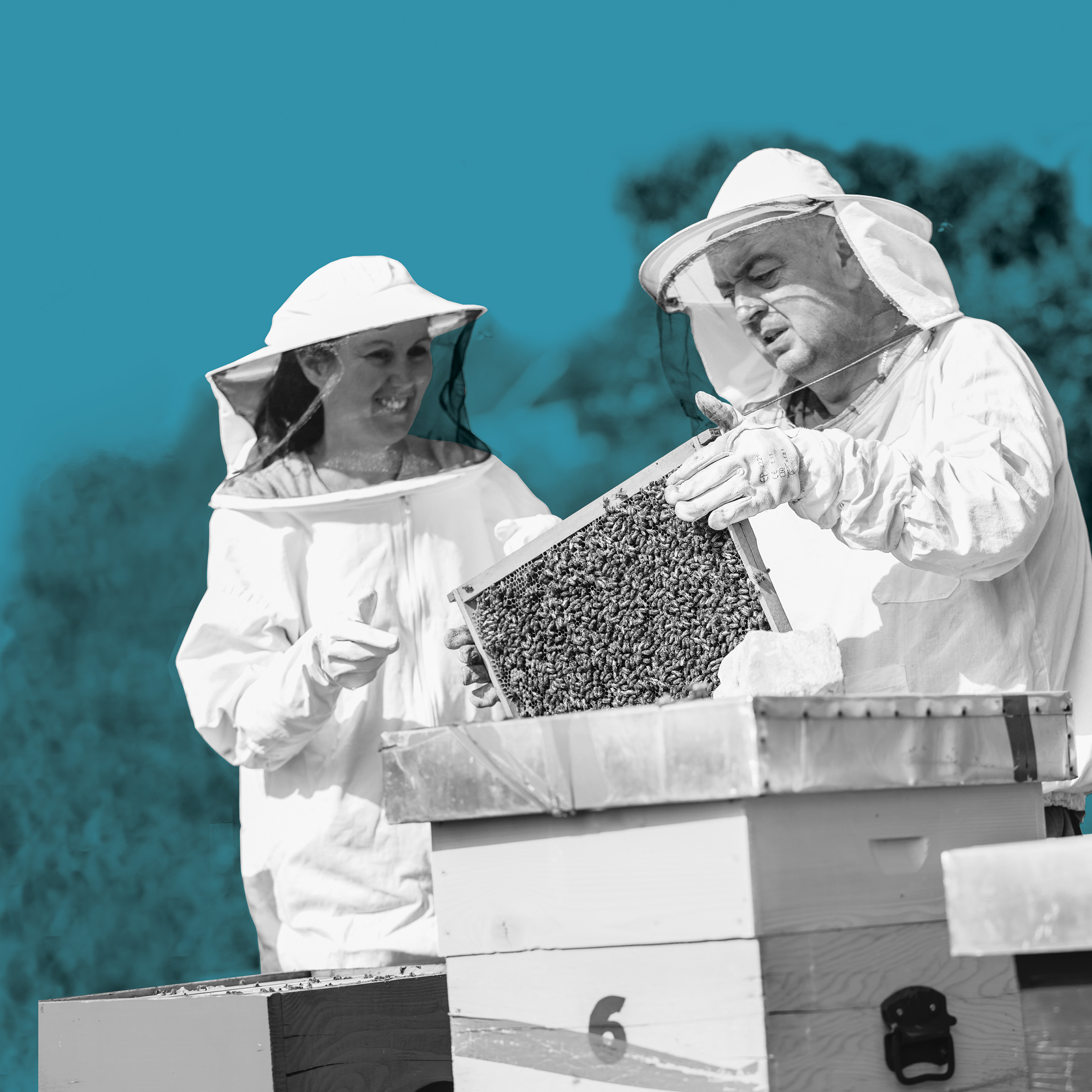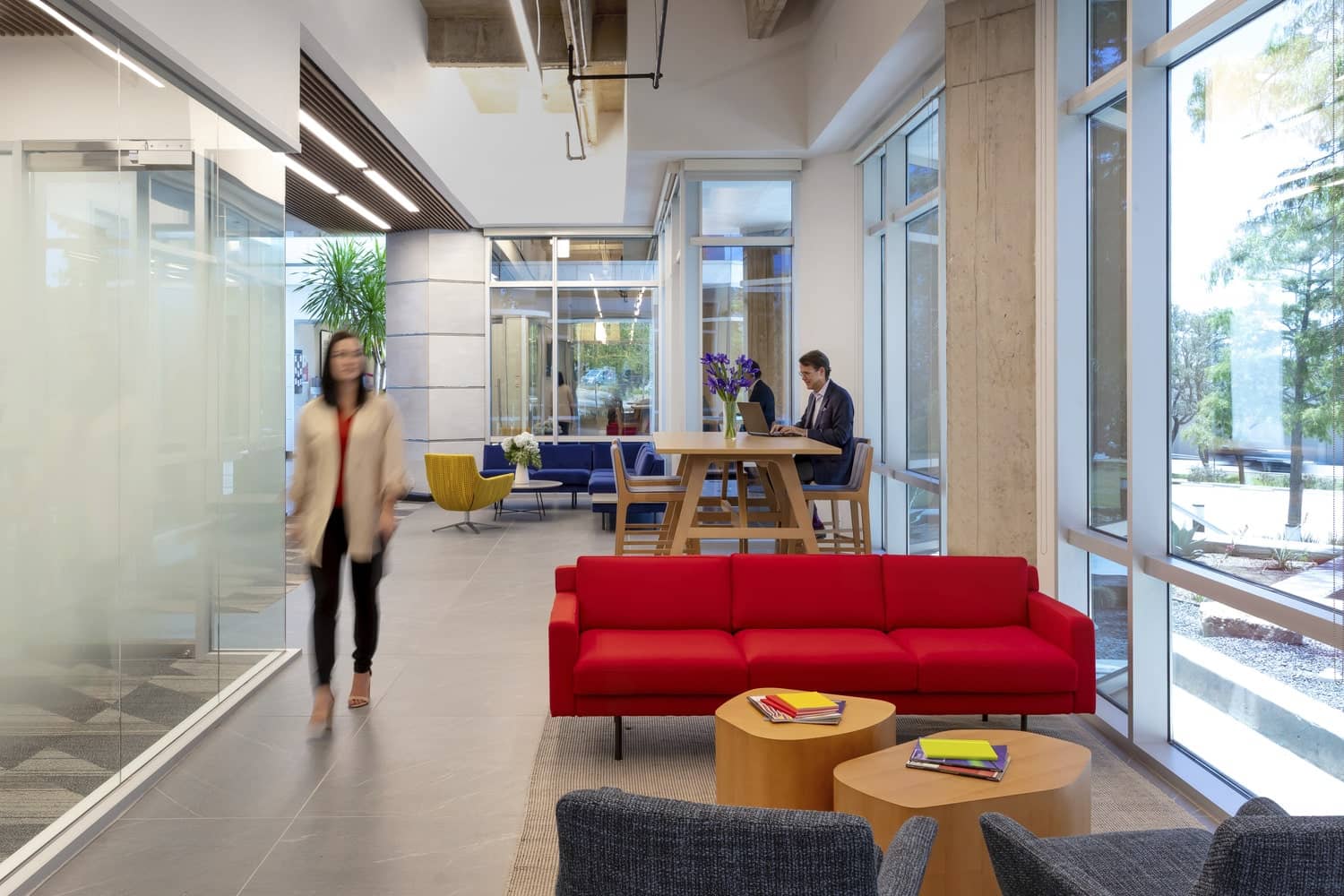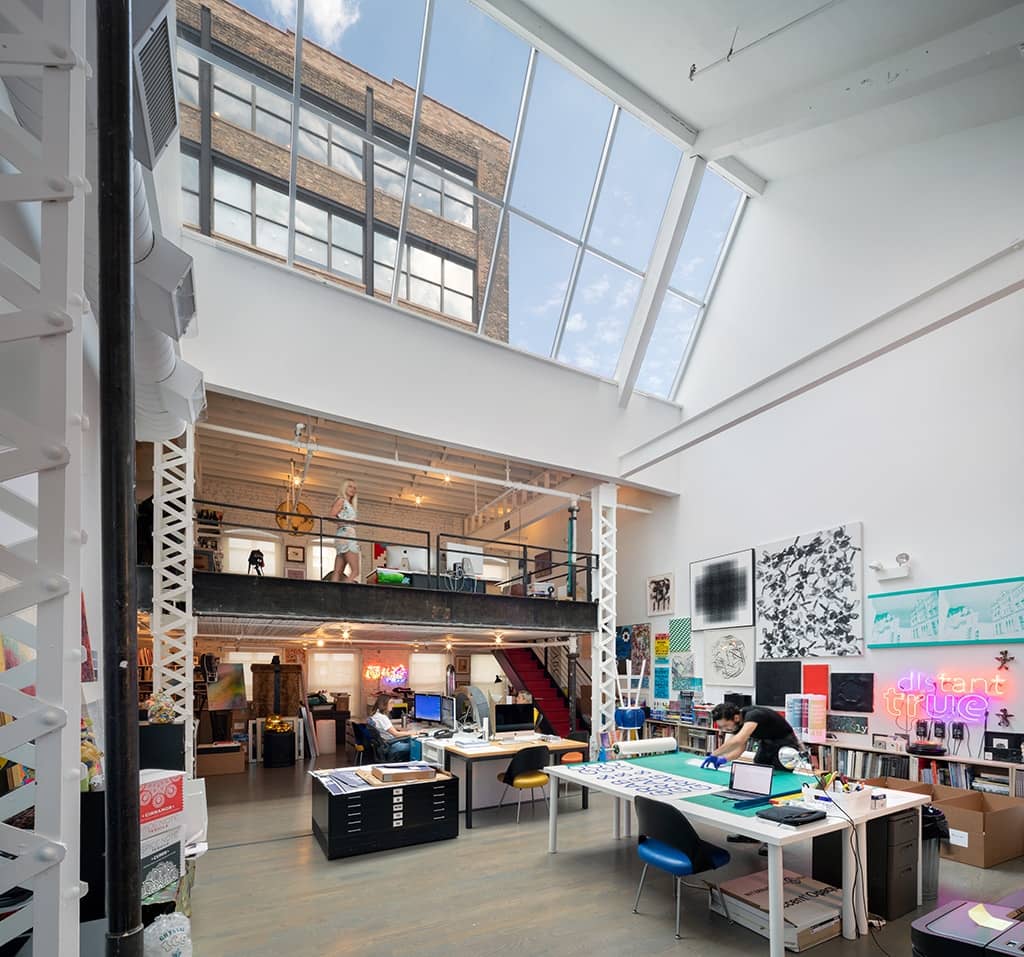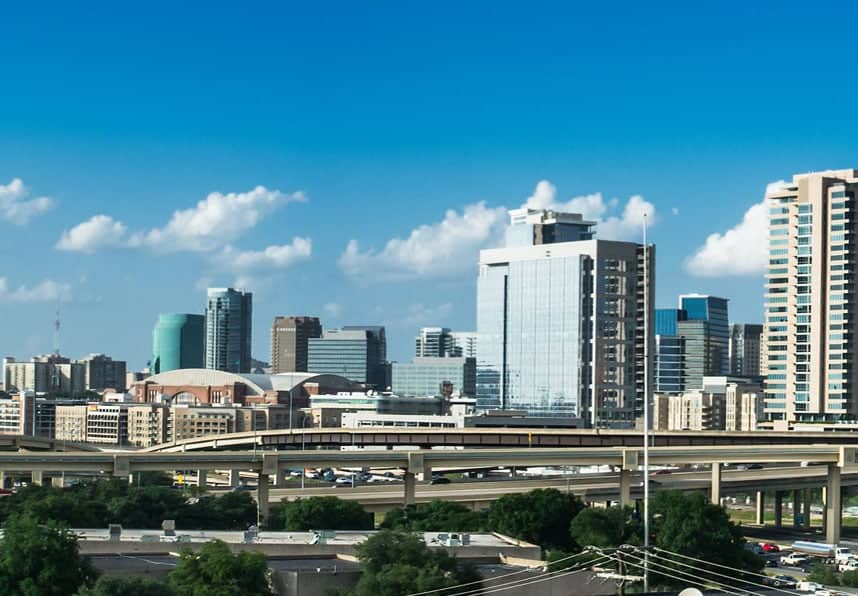Best of all, the “buzz” around its success is music to everyone’s ears.
Commercial property owners throughout North America are implementing urban beekeeping programs in the form of rooftop apiaries (collections of beehives) in an effort to give back to nature and enhance the well-being of tenants.
To date, urban bee hives can be found at these KBS properties, including:
- Bank of America Tower in Raleigh, North Carolina
- Carillon in Charlotte, North Carolina
- Dulles Station East in Herndon, Virginia
- 1000 Continental in King of Prussia, Pennsylvania, and CrossPoint in Wayne, Pennsylvania
- 3001 Washington Boulevard and 3003 Washington Boulevard in Arlington, Virginia
- 201 17th Street in Atlanta, Georgia
- 60th South Sixth in Minneapolis, Minnesota
- McEwen in Franklin, Tennessee
- UBS Tower in Nashville, Tennesse
How did this initiative come to “bee”? Well, here’s a primer on how these prolific pollinators play a crucial role in the greater ecosystem — and why rooftop beehives and KBS office buildings make a sweet pair.
Supporting the Natural World to Meet Critical Needs
Honeybees are responsible for about 80% of pollination worldwide. With one-third of the U.S. food supply dependent upon pollination, they’re a critical part of our country’s agricultural production. Yet U.S. bee populations have declined from six million hives in the 1940s to around 2.5 million today.
With one hive — which contains approximately 50,000 bees or more — producing roughly 100 pounds of honey a year, the contribution of just one or two bee-hives is highly significant for the ecosystem.
What’s more, according to Smart Cities Dive, beekeeping in urban areas can have a greater positive impact on food production than rural bees. They have a winter survival rate of 62.5% as compared to only 40% for their rural counterparts. Additionally, urban bees live longer, healthier lives on average and produce more honey than rural bees.
Properties Made for Beekeeping
KBS began to consider features like rooftop beehives years ago, a move that aligns with its environmental, social and governance (ESG) goals to repurpose unused space AND make the workplace exciting to visit.
When we acquired both Arlington, Virginia, properties, 3003 Washington Boulevard in 2014, then 3001 Washington Boulevard in 2015, we recognized that the LEED Gold-certified buildings with green roofs installed were well suited for an urban beekeeping program.
The urban apiary program at these properties is maintained by a beekeeping company that provides turnkey urban apiaries to businesses and schools. Working in partnership with the Building Owners and Managers Association (BOMA.org), the company ensures its beekeeping program is professionally managed and high safety standards are met.
The success of this program led to additional partnerships and beehives at our properties throughout the country. For example, at Bank of America Tower in the North Hills section of Raleigh, North Carolina, features two beehives, each holding about 65,000 honeybees. Once the hives were installed, they were maintained by a company that runs an urban apiary program on corporate campuses around North Carolina. The company’s main goal is to rebuild the honeybee population and engage employees in its mission of saving the bees.
The addition of these hives enables areas near the apiaries to be pollinated. In turn, this helps flowers and vegetation in the region to thrive. The program is having a strong positive impact on the surrounding 18,000-acre stretch of the environment in Raleigh while providing bountiful benefits for our Bank of America Tower tenants.
Rooftop beehives can also be enhanced by other property amenities. At 1000 Continental in King of Prussia, Pennsylvania, KBS has a community garden for tenant use. The hive is not only a dynamic complement to the garden, but its components — lavender and assorted flowers in particular — are an integral part of the pollination process. What’s being produced is truly sustainable, on-site products naturally manufactured from the nectar of herbs and flowers cultivated in the garden.
A Sweet Arrangement
Although the beekeeping program incurs some expense, the benefits tend to outweigh the costs because it creates such a unique office amenity — and is good for the environment, too.
The beekeeping companies with whom KBS partners facilitate the process, manage operation of the hives, and make the whole experience fun and engaging for tenants.
In the spring, the apiary organizations open the hives on the rooftop. A beekeeper visits every three weeks to service the hives and provide livestream webinars of their progress for tenants to view in real time. Most of the apiaries have individualized webpages for each property in the program. In the fall, the honey is harvested, the hives stay in place year-round and are monitored throughout the winter.
As a perk, at most properties, KBS gives tenants jars of the honey the bees produce. At 100 pounds of honey per hive produced each year, this translates into several hundred jars for each building, depending on the number of hives installed.
Aside from the environmental gains and gifts of honey that KBS is bestowing upon its tenants, the urban apiary program offers additional benefits. The bee-keeping workshops at these KBS assets have allowed each building’s community to experience a day in the life of a beekeeper by virtually opening an actual buzzing hive.
As part of the interactive and educational experiences, programs also offer online components such as providing others the opportunity to escape the office, house, apartment or desk for a moment and get a little taste of what a typical beehive inspection looks like. Tenants are highly engaged in these programs — livestream webinars about beehives at our Arlington properties have attracted up to 150 attendees during the coronavirus pandemic.
Although the actual return on investment for this program is too complex to measure, the return in environmental benefits — and even the delight of honey aficionados — cannot be overstated. The program’s cost is minimal compared to the value of the positive response of KBS tenants and the communities in which our properties are located. KBS, its property managers and the apiary companies measure return on investment by the level of engagement the hive inspires.
Supporting beekeeping in urban areas is one of many small things KBS assets do for the environment — all of which add up. We strive to take care of our tenants and bring a value-added experience wherever possible. Through this program, KBS has discovered an innovative way to make the environment a better place and add a little sweetness to our tenants’ workdays.
Learn about the latest in commercial real estate, visit KBS.com/Insights. Also, read more about urban beekeeping and rooftop apiaries here.




